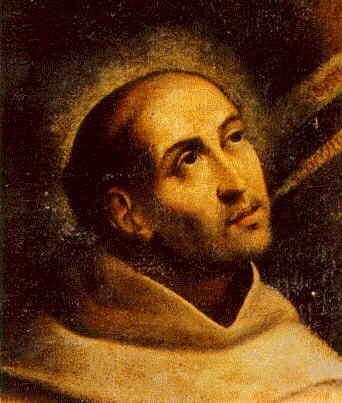
St. John of the Cross
Letter #130, 2022 Thursday, December 14: Dark night
Christmas is drawing near.
Yet we remain forgetful of who was born this day: the Logos of God… the meaning of God.
Though Christmas nears, our culture remains in a collective “dark night,” marked by a forgetfulness of the deepest things, and by a ceaseless desire for what seems to offer, but does not truly give, true intimacy, blessedness, and joy.
Our culture is stumbling in the dark, intent on knowing the things of time, things in process, things always becoming, progressing — forgetful of the eternal, of the changeless, of what is.
So it seemed fitting to recall here the text of a classic poem by St. John of the Cross, the great Spanish Carmelite mystic and poet (1542-1591; he died at the young age of 49).
St. John of the Cross’s poem tells the journey of the soul from its bodily home to its union with God. The journey is called “The Dark Night,” darkness representing the hardships and difficulties the soul meets in detaching from the world and time to approach the light of God, to become one with God.
John reminds us that our greatest joy — our only final joy — comes in this journey… in seeking, and finding, our eternal beloved.
Christmas, the fact that Mary did on this day in Bethlehem so long ago give birth to Jesus, signifies that this is possible journey, a journey we can undertake.
The whole mission of the Church is to repeat this: that the journey toward Christ is possible, that we can set out to try to find Him, and, in the end, actually find Him.
A blessed Advent to all, especially to those who are sick and alone, at this time of the celebration of Christ’s coming into the world. —RM
The Dark Night
by St John of the Cross (written in about 1578 in Spain)
On a dark night,
on fire with longing for love
— O hapless, happy plight! —
I went, none seeing me,
Forth from my house, being still at last.
In darkness, and safe,
by the secret stairway, disguised,
— oh, happy venture! —
in darkness and concealed,
my house being still at last.
Into the happy night
in secret, for no one saw me,
and neither did I see anything
without light or guide
save that which burned in my heart.
This guided me
more surely than the light of noon
to where He
— one well known to me — awaited
in a place where no one could find us.
O night that guides!
O night more lovely than the light of dawn!
O night that unites
the lover with the beloved,
transforming the lover into the beloved.
Upon my flowering breast,
which I kept wholly for him alone,
there he dwelled,
and I caressed him
while the cedars fanned us with their breeze.
The breeze came over the castle wall,
as I ran my fingers through his hair;
with his gentle hand,
he wounded my neck
and suspended all my senses.
Thus I dwelt, and forgot myself,
my face resting directly upon the beloved;
all things ceased; and I was set free,
leaving my cares
forgotten among the lilies.
***
In Spanish:
La noche oscura del alma
En una noche obscura,
con ansias en amores imflamada,
¡oh dichosa uentura!
sali sin ser notada,
estando ya mi casa sosegada.
A escuras y segura,
por la secreta escala disfraçada,
¡oh dichosa uentura!
a escuras y ençelada,
estando ya mi casa sosegada.
En la noche dichosa,
en secreto, que nadie me ueya,
ni yo miraua cosa,
sin otra luz ni guia
sino la que en el coraçon ardia.
Aquesta me guiaua
mas cierto que la luz del mediodia,
adonde me esperaua
quien yo bien me sabia,
en parte donde nadie parecia.
¡Oh noche que me guiaste!
¡oh noche amable mas que el aluorada!,
¡oh noche que juntaste
amado con amada,
amada en el amado transformada!
En mi pecho florido,
que entero para el solo se guardaua,
alli quedo dormido,
y yo le regalaua,
y el ventalle de cedros ayre daua.
El ayre de la almena,
cuando ya sus cabellos esparzia,
con su mano serena
en mi cuello heria,
y todos mis sentidos suspendia.
Quedeme y oluideme,
el rostro recline sobre el amado,
ceso todo, y dexeme,
dexando mi cuidado
entre las açucenas olvidado.
—St. John of the Cross (1542-1591)
In Mary, we find many answers to our confusion, our malaise, our doubt, our sinfulness, our estrangement, from God and from ourselves… if we would but look to her!
And therefore…
Inside the Vatican presents a stunning new, 100-page special edition, MARY: Behold Your Mother, just now at the press, and available NOW.







Facebook Comments